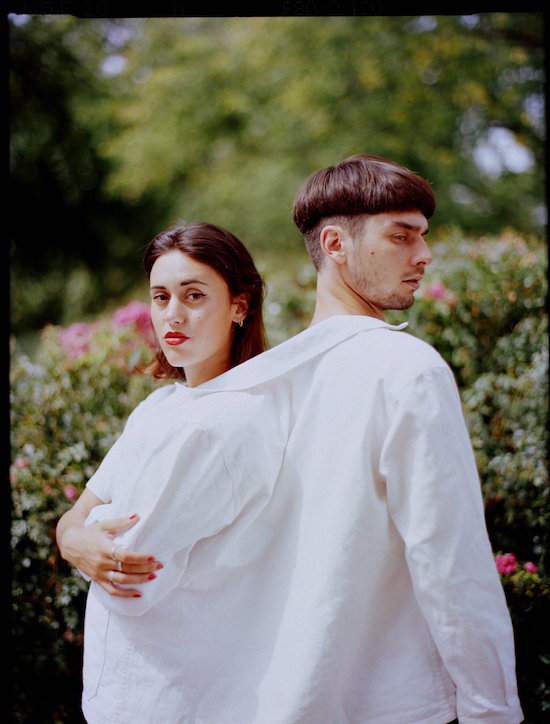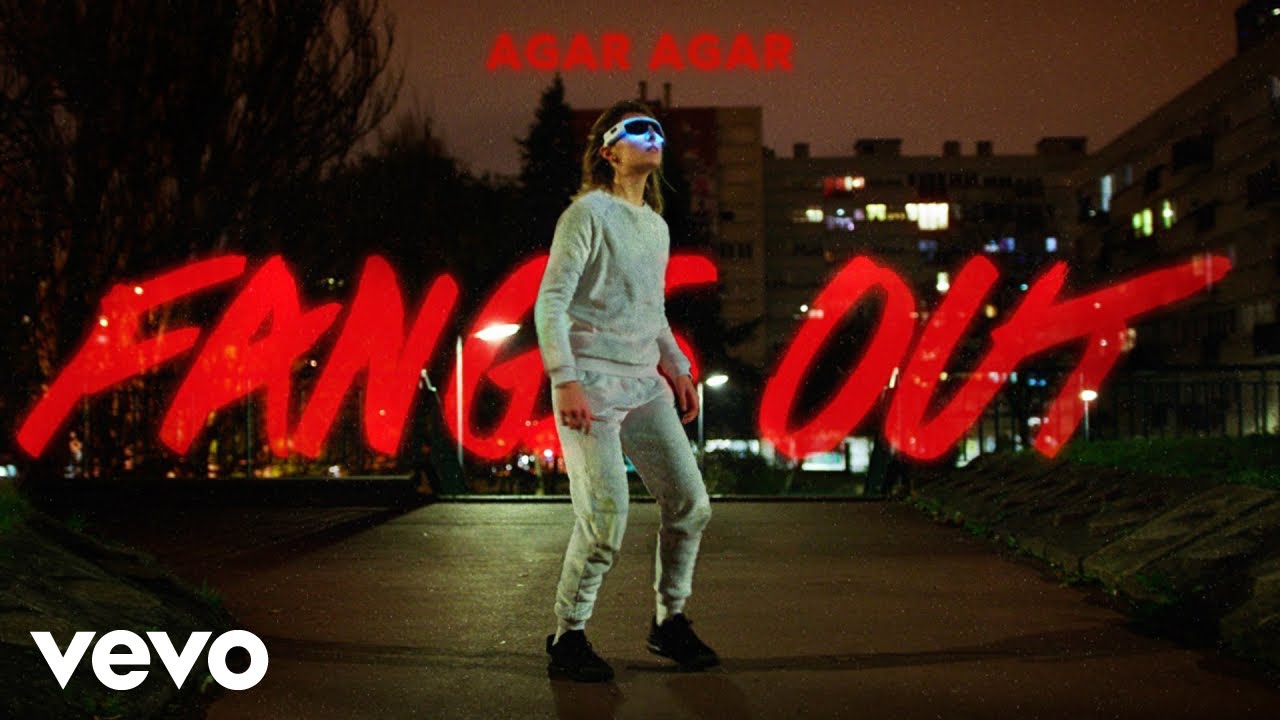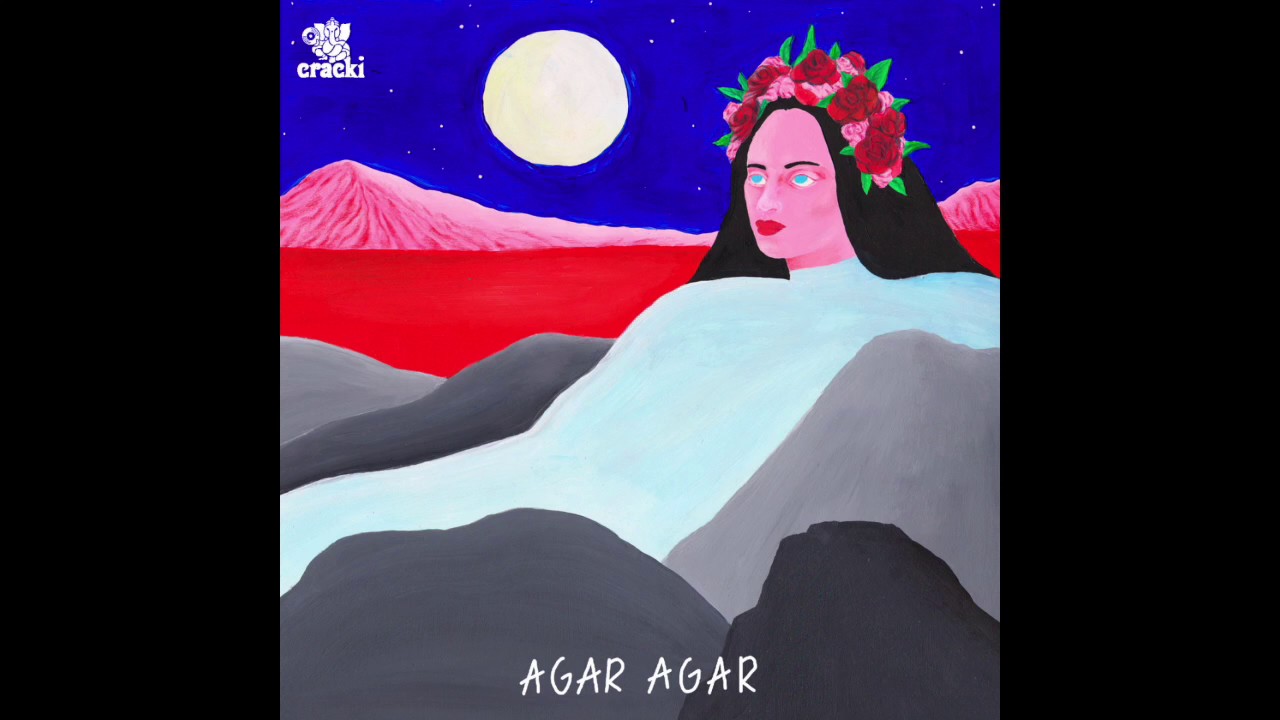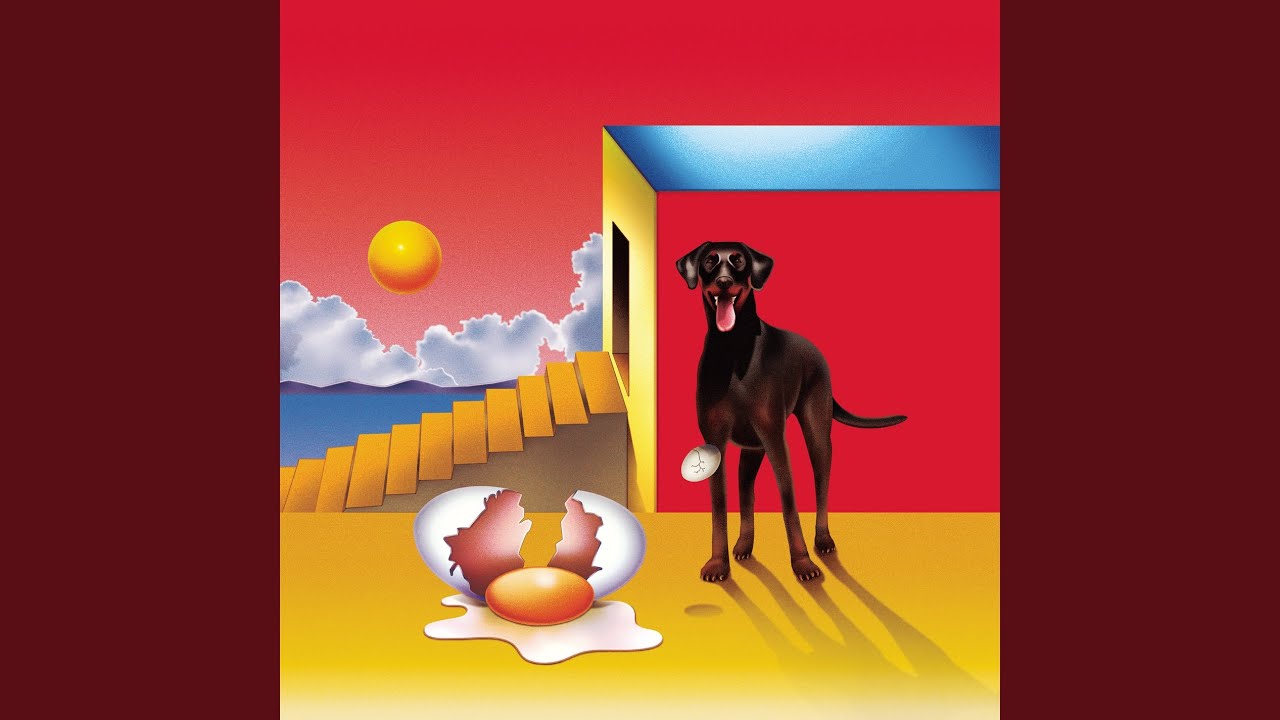After a couple of failed rendez-vous, I finally catch up with electronic pop duo Clara Cappagli and Armand Bultheel at a café just near Paris’s Gare du Nord – they still have their gear with them as they’ve just got back from a party in Belgium, and I’ve got my wheely case as I’m about to head back to London. It’s release day for their debut album, The Dog And The Future, on indie label Cracki but assisted by Sony France’s major muscle.
It’s been a brief recording career to date – a debut EP, 2016’s Cardan, and ‘You’re High’, a cover of compatriot Demon’s French touch classic ‘You Are My High’. But this handful of tracks, and in particular the buttoned-up yearning of ‘Prettiest Virgin’, have been enough to turn them into hot prospects, with shows coming up at Village Underground in London and the venerable Olympia in Paris.
Having gone into self-imposed exile to record, they’ve returned with an album that is concise and accessible, crisp and chunky, while revealing surprising new idiosyncrasies. ‘Sorry For The Carpet’ is the chugging, mid-paced synth pop you’d expect and the ghost of Bronski Beat’s ‘Smalltown Boy’ looms over ‘Fangs Out’s stuttering, stabbing beat, but there are also ‘Gigi Song’, ‘Duke’ and ‘Requiem’, all peculiarly touching laments that are brim-full of nostalgia for virtual worlds. And Cappagli is a genuine character – or characters perhaps, given her array of vocal mannerisms and whoops.
As Clara and Armand arrive I’ve just taken a look at the album sleeve for the first time.
It’s Dali-esque and features a dog and an egg. So the egg represents the future and the dog is… a dog.
Armand Bultheel: You can look for the symbolism behind it and it’s a fun game but let’s say that it’s not something to take too seriously either – it’s more because we like dogs and eggs. It was done by Keith Rankin, an American who has a label called Orange Milk. We really like his work and many of the artists he’s signed, experimental electronic artists. He designs a lot of the sleeves for his label’s releases himself, so we asked him if he could do ours as we knew it would work for us. To begin with we didn’t know how much direction we would give him, and gradually we got to the fact that we wanted a dog and an egg – that’s all we asked for.
So the album’s out today, how does it feel?
Clara Cappagli: It’s a big day for us even if it’s quite strange, it’s virtual – we’re happy but we don’t know what it means yet, we haven’t had people’s reactions yet, it’ll take a little time.
AB: Obviously we made it, we’ve listened to it, we’re happy that people can finally listen to it, that we can talk to people about particular tracks. We’re there finally – in fact we’re further ahead because we’ve started writing new tracks.
It’s more downbeat than I imagined…
AB: Introspective?
Yes introspective perhaps, you haven’t gone for the big statement.
AB: Well the statement is really that we’re following our own path and that we’re going to continue trying lots of different things, drawing on loads of influences and being as free as we can in what we do, and that it’s going to be a journey.
CC: It’s also more introspective because we know each other better and that means our work has evolved. Our collaboration is increasingly interesting and enriching for us.
AB: We spent three months in an isolated house in the Basque Country, far from Paris and from all our social groups, really just focused on ourselves, so that created a kind of joint introspection.
How cut off were you?
CC: Well we went shopping, things like that, but it was still quite strange, there was silence, we were really in the countryside. Let’s say it was a balance between being totally out in the sticks and still being able to see people if you wanted to. It was winter and it’s a seaside resort so at that time of year there’s really no-one. When you’re alone in a place like that there’s quite a special feeling.
Was it important to get away?
CC: It was necessary really – we’d never done it so we didn’t know how it would influence us, and also we were fed up of writing in Paris between two shows. We needed time to create a real musical landscape. And in fact it really worked, I think we worked better, we went deeper.
AB: We were able to talk a lot about what we were doing. We also spent a lot of time playing video games, drawing and painting, then we’d talk about them and that fed into our discussions even without us being too conscious of it.
You’ve mentioned the freedom you give yourselves but I wondered whether you also place some limits on yourselves as well, in terms of the palette of sounds for example?
AB: The only limit we placed on ourselves was in terms of the equipment. When we record we only use our own instruments, the set-up we had when we started because that was what was available to us. It’s grown a little bit but it still isn’t huge – we opened things up a little bit in the Basque Country because I have a bit of new gear but not much, just a couple of machines, like an FM synth which is on several tracks and not on the first EP, and the TR 606 as a drum machine which is more 80s, so they allowed us to introduce a few new colours but we felt we hadn’t really exhausted this set up and that we could really still express new things with it with just a few small additions.
CC: But we’re going to change now!
OK, because I felt as though part of the task you’d set yourselves was to expand your sound without losing its core.
AB: Yeah, and now we’re getting rid of the core. We don’t know exactly what it’s going to be yet but I’ve started to move on now from what I had, which was very 70s-80s and analogue, and I’m moving towards gear that was created with rave music in mind… but it’s still early days.
The lyrics can be surreal, really brutal and direct or quite humdrum. Clara, do you note ideas down.
CC: No… how do I do it? I basically do yaourt (yoghurt – singing English words and nonsensical sounds) and then I look for the words with Armand. I write them but Armand suggests things. But I don’t spend hours writing the words. I think the key thing with this project is the voice as instrument, though the words are still important.
AB: You write as well in a kind of spontaneous outpouring while we’re writing, so that the pictures that the music suggests are captured immediately. But obviously they’re influenced by all kinds of things that we see and read.
I was struck by “Bitch you lied to me, I’ll kill your Daddy.”
AB: It’s the last line on the album, and it’s delivered with such lyricism!
CC: I wanted something out of phase with the dramatic arrangement of the song, with words that were both very light and at the same time very violent and modern.
AB: It came from a story we told ourselves about this track, it was an old instrumental that we decided to do again with lyrics. Originally the text was a lot longer, and the idea was a sort of post-human world. Human beings have all disappeared, but a lot of technology remains, including phones which continue sending each other old messages in this vacuum, things that people had sent to each other, but devoid of the original context. So that was the first part of the story, and then that was followed by a focus on one of these conversations in particular. In the end, we just kept that conversation.
Is this kind of scenario primarily useful as a way to generate lyrics?
CC: No, the story is entirely part of the song, there are songs where we tell stories even if we don’t necessarily get to the end. But I think it’s important not to be too literal and to retain some secrets.
There was some US-centric nostalgia on ‘Prettiest Virgin’, prom nights and so on, and there’s a bit of that on the album as well – where does it come from? Clara you lived in the US for a while.
CC: ‘Prettiest Virgin’ was written really as kind of a joke, something really very cheesy. And there’s a track on the album, ‘Gigi Song’, which recalls that a bit because it’s very American.
It’s like a girl group ballad.
AB: It was something she wrote before Agar Agar that we appropriated.
CC: But I’m definitely a fan of these places in the US that are off the beaten track, because I lived it. I was in Wisconsin in tiny town, it was a very unusual experience that had a profound impact on me, and I think musically there’s a link to that. You know, like the coffee shop in Twin Peaks.
With ‘Prettiest Virgin’, what happens when a song you’ve only written as a joke becomes the one that you’re most associated with?
CC: It was weird because we thought that perhaps we’d failed in some way, that we hadn’t managed to get our message across.
AB: Perhaps we hadn’t succeeded in terms of production either, but that’s normal as it was our first release. So, no regrets but it taught us to be more precise in the tone we wanted for our tracks.
But when that happens you must say to yourselves that there are things people like about your music that aren’t intentional on your part.
AB: Yes of course but that’s ok, you have to learn to let things go. But it’s taught us to make better choices about what we put out there, to be clearer in our intentions. I think on the album there’s greater control. still opening up possible meaning and interpretations but not sending out a message that has nothing to do with our intentions. Finding that balance isn’t easy.
The track did help you find an audience very quickly.
CC: Yes so it was a good thing obviously.
AB: A good and a bad thing…
CC: But it puts us in a position now of having an audience who’ll listen to our more introspective songs.
AB: The only slight fear we had with that track is that we asked ourselves whether we’d found the right audience. We thought, what if this track is a kind of mistake in the sense that people wouldn’t understand the things we would do next? But it was a fear that didn’t last long, and we realised that it wasn’t really an issue. You can’t assume that your listeners, or the public generally, are a sort of uniform mass who listen to things for only one reason. People have interpreted it in all kinds of different ways.
You mentioned video games, and you’ve talked before about your use of counterpoint on some tracks. I wondered to what degree the counterpoint draws directly on classical sources or if it’s filtered through video game music?
AB: It’s true that video game music and a return of counterpoint went hand in hand, simply because the earliest computers and consoles had small synth chips integrated there was no possibility of harmony, it was small monophonic melodies that has to be pieced together. On Segas or Gameboys, it’s almost entirely counterpoint. And I think that was an important introduction for our generation. And when you use quite a few monophonic synths it leads you in that direction.
I’m thinking of ‘Requiem’ and ‘Duke’.
AB: Yes ‘Duke’ wrote that at a time when we were both playing a particular game a lot, one that isn’t exactly medieval but a fantasy world that was a bit Dungeons & Dragons-y, but also beginning to be industrialised – the steam engine has been invented. We talked about it a lot, and at the same time we were listening to a lot of dungeon synth stuff on YouTube, often parodies of medieval music that are heavily inspired by video games. At a certain point it inspired us to see what we could do with those ideas. We also had a lot of fun making it, I think it’s a really funny track.
Clara, you sang in rockier groups before, with Agar Agar did you find a different voice?
CC: Not really. There are songs where I’m a lot more restrained, more poppy, but on stage it’s exactly the same voice that I used in the rock groups – I go for it, I shout. I feel like I’ve just brought this thing, of singing in a way that’s a bit eeeeeurgh to Agar Agar.
By chance I met someone who knows your housemate and apparently the yelps and odd voices when you sing are something you’re quite prone to in real life.
CC: Yes it’s instinctive, I don’t think about it too much!
Your live shows are surprisingly powerful, how do you generate that energy?
CC: We really cut out teeth playing live, and it’s something we’ve always been interested in, also because it’s through playing live that we come up with new ideas.
AB: Yes it’s at the heart of what we do. I think our live performances are still better than our recordings, it’s really what we do best. A lot of that energy come from Clara, she moves a lot, she’s the priestess of the stage. She comes from a garage rock background. But also we very quickly gravitated towards composing dance-y tracks given the equipment we had, and drawing on techno and Italo disco, so I think it’s the combination of those two things.
There’s perhaps almost half the album that isn’t particular danceable though?
CC: We’ve left the ballads out of the live set.
No lighters-in-the-air moments yet?
AB: Not for now anyway, at the moment it’s all about maintaining the intensity.
Agar Agar play Village Underground, London on Tuesday October 23





